Nori Chicken IL-4 ELISA Kit
$461.00 – $832.00
This ELISA kit is for quantification of IL-4 in chicken. This is a quick ELISA assay that reduces time to 50% compared to the conventional method, and the entire assay only takes 3 hours. This assay employs the quantitative sandwich enzyme immunoassay technique and uses biotin-streptavidin chemistry to improve the performance of the assays. An antibody specific for IL-4 has been pre-coated onto a microplate. Standards and samples are pipetted into the wells and any IL-4 present is bound by the immobilized antibody. After washing away any unbound substances, a detection antibody specific for IL-4 is added to the wells. Following wash to remove any unbound antibody reagent, a detection reagent is added. After intensive wash a substrate solution is added to the wells and color develops in proportion to the amount of IL-4 bound in the initial step. The color development is stopped, and the intensity of the color is measured.
Alternative names for IL-4: Interleukin 4, IL4
This product is for Laboratory Research Use Only not for diagnostic and therapeutic purposes or any other purposes.
- Description
- How Elisa Works
- Product Citation (0)
- Reviews (0)
Description
Nori Chicken IL-4 ELISA Kit Summary
Alternative names for IL-4: Interleukin 4, IL4
| Assay Type | Solid Phase Sandwich ELISA |
| Format | 96-well Microplate or 96-Well Strip Microplate |
| Method of Detection | Colorimetric |
| Number of Targets Detected | 1 |
| Target Antigen Accession Number | C4PAA9 |
| Assay Length | 3 hours |
| Quantitative/Semiquantitative | Quantitative |
| Sample Type | Plasma, Serum, Cell Culture, Urine, Cell/Tissue Lysates, Synovial Fluid, BAL, |
| Recommended Sample Dilution (Plasma/Serum) | No dilution for sample <ULOQ; sufficient dilution for samples >ULOQ |
| Sensitivity | 8 pg/mL |
| Detection Range | 39-2600 pg/mL |
| Specificity | Chicken IL-4 |
| Cross-Reactivity | < 0.5% cross-reactivity observed with available related molecules, < 50% cross-species reactivity observed with species tested. |
| Interference | No significant interference observed with available related molecules |
| Storage/Stability | 4 ºC for up to 6 months |
| Usage | For Laboratory Research Use Only. Not for diagnostic or therapeutic use. |
| Additional Notes | The kit allows for use in multiple experiments. |
Standard Curve
Kit Components
1. Pre-coated 96-well Microplate
2. Biotinylated Detection Antibody
3. Streptavidin-HRP Conjugate
4. Lyophilized Standards
5. TMB One-Step Substrate
6. Stop Solution
7. 20 x PBS
8. Assay Buffer
Other Materials Required but not Provided:
1. Microplate Reader capable of measuring absorption at 450 nm
2. Log-log graph paper or computer and software for ELISA data analysis
3. Precision pipettes (1-1000 µl)
4. Multi-channel pipettes (300 µl)
5. Distilled or deionized water
Protocol Outline
1. Prepare all reagents, samples and standards as instructed in the datasheet.
2. Add 100 µl of Standard or samples to each well and incubate 1 h at RT.
3. Add 100 µl of Working Detection Antibody to each well and incubate 1 h at RT.
4. Add 100 µl of Working Streptavidin-HRP to each well and incubate 20 min at RT.
5. Add 100 µl of Substrate to each well and incubate 5-30 min at RT.
6. Add 50 µl of Stop Solution to each well and read at 450 nm immediately.
Background:
Interleukin-4 (IL-4) is a cytokine that is expressed in a variety of tissues including lymphocytes and leukocytes, is a key regulator in humoral and adaptive immunity and has many biological roles, including the stimulation of activated B-cell and T-cell proliferation, and the differentiation of CD4+ T-cells into Th2 cells. IL-4 induces differentiation of naive helper T cells (Th0 cells) to Th2 cells. Upon activation by IL-4, Th2 cells subsequently produce additional IL-4. The cell that initially produces IL-4, thus inducing Th0 differentiation, has not been identified, but recent studies suggest that basophils may be the effector cell.[1] It is closely related and has functions similar to Interleukin 13. Like IL-13, Interleukin 4 (IL-4) is critical for responses to parasitic helminthes. [2] IL-4 up-regulates MHC class II production and decreases the production of Th1 cells, macrophages, IFN-gamma, and dendritic cell IL-12. Tissue macrophages play an important role in chronic inflammation and wound repair. The presence of IL-4 in extravascular tissues promotes alternative activation of macrophages into M2 cells and inhibits classical activation of macrophages into M1 cells. An increase in repair macrophages (M2) is coupled with secretion of IL-10 and TGF-β that result in a diminution of pathological inflammation. This cytokine was co-discovered by Maureen Howard and William Paul[3] and by Dr. Ellen Vitetta and her research group in 1982. The nucleotide sequence for human IL-4 was isolated four years later confirming its similarity to a mouse protein called B-cell stimulatory factor-1 (BCSF-1).[4]
References
- Sokol, C.L., et al. (2008). Nat Immunol 9 (3): 310–318.
- Liang, H-E, et al. (2012) Nature Immunology, 13: 58–66.
- Howard M, Paul WE (1982). “Interleukins for B lymphocytes”. Lymphokine Res. 1 (1): 1–4.
- Yokota T et al. (1986). Proc. Natl. Acad. Sci. U.S.A. 83 (16): 5894–8.
Be the first to review “Nori Chicken IL-4 ELISA Kit”
You must be logged in to post a review.
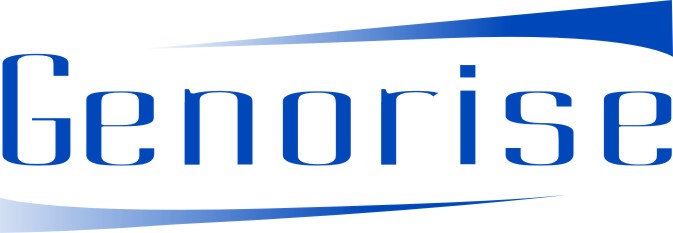






















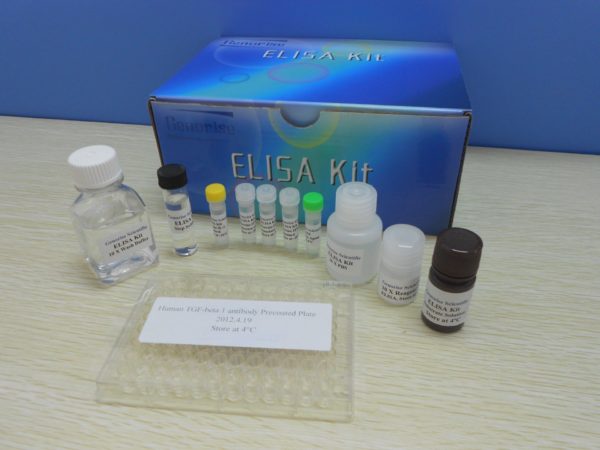
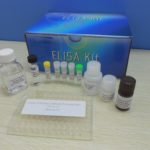
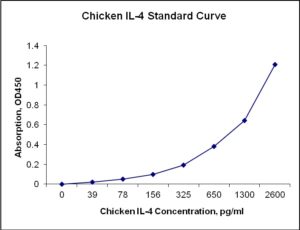
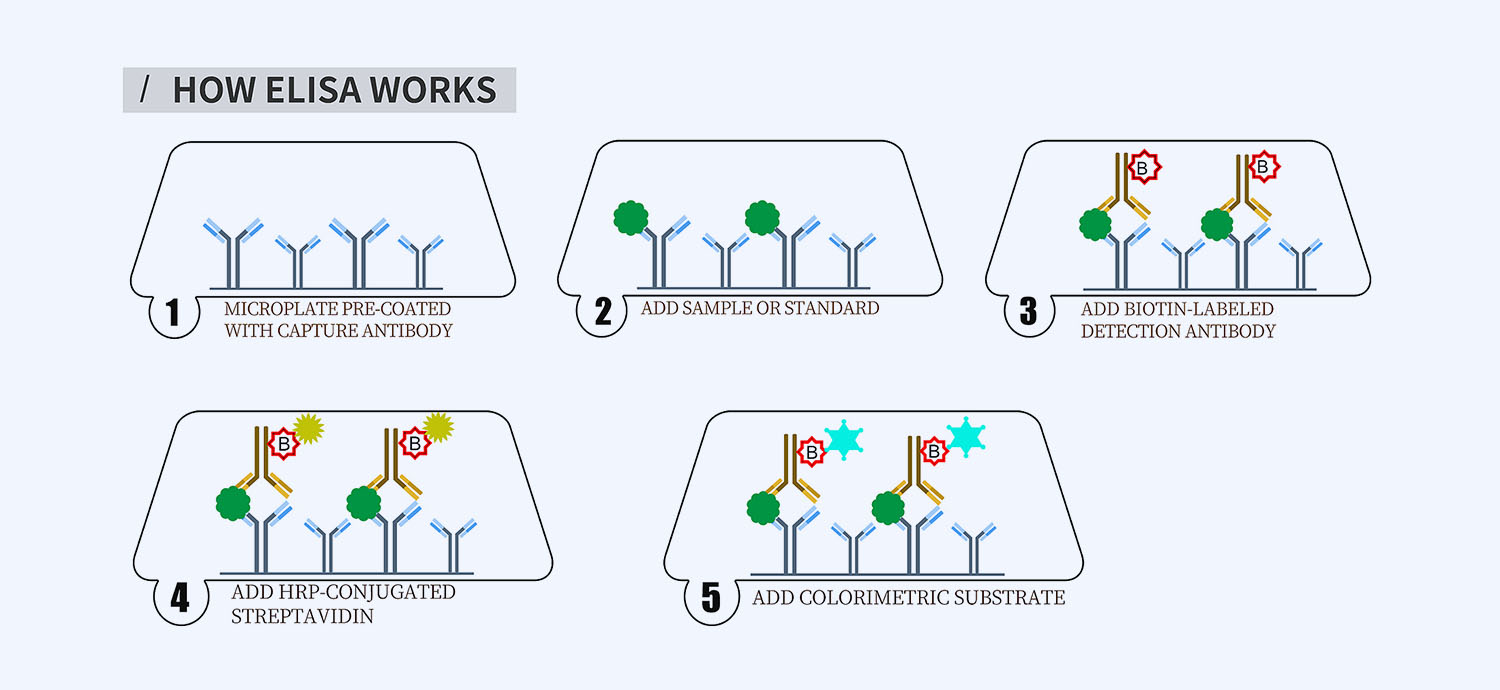
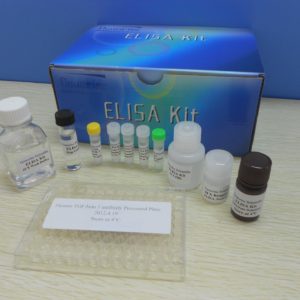
Reviews
There are no reviews yet.